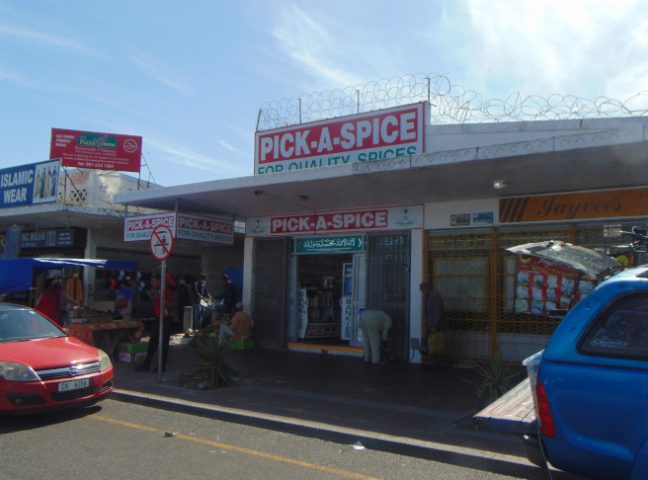
The Spice Wars (Part One) – Nutmegged
December 24, 2021
The Spice Wars (Part Three)
December 28, 2021By Satish Sekar © Satish Sekar (December 28th 2021)
Sailing Routes and Rewritten History
It sounds unbelievable but coveting a monopoly over trade in spices led to massacres, enslavements, dispossession, transportation, ‘homelands,’ slave trading and the introduction of race-supremacist slavery to South Africa. Incredibly, the Dutch colonisation of the east of Asia and East Indies (Indonesia) was all about control of the lucrative Spice Trade.
Previously, content with trading with the Portuguese who controlled the trade due to having exclusive access to the sailing route to India, Malaysia and the East Indies, things fell apart when Portugal allied with Catholic Spain in the last decade of the 16th Century. Fiercely Protestant, the Netherlands was not about to countenance continuing the previous arrangement, but the Portuguese held the cards, and the Dutch knew it.
In the 1480s Bartolomeu Dias ‘discovered’ the route to the Cape of Good Hope, even though they used maps drawn by Venetians a quarter of a century earlier. Actually, Dias was two millennia late for that ‘discovery’ as 26th Dynasty Egyptian Pharoah Necho II who ruled from 610-595BC, commissioned the first circumnavigation of Africa. It was conducted by Phoenicians, the master sailors of that era, and supported by the great historian, Herodotus (see Rewriting history at https://fittedin.org/fittedinwp/2020/09/27/rewriting-history/).
The Origins of Spice Trade Exploitation
This enabled settlements to be established by Portuguese colonialists on the south-western coast of Africa, in what is now Angola and the Democratic Republic of Congo in the 16th Century. But Portuguese settlements in Angola at that time were more about slavery. Nevertheless, Dias’ voyage had contributed to Portuguese control of the Spice Trade.
Between 1497-99 Vasco da Gama made the first trip to India. Da Gama’s arrival opened up the era of colonialism in India, but first riches were to be earned from the Spice Trade. This was the beginning of Europeans realising the importance and wealth to be gained from the Spice Trade. It led to a huge advantage that gave the Portuguese a monopoly in the Spice Trade and led to colonialism and brutality in the chase for profits even though the Mughal Empire was not stranger to using such methods to maintain its control. Within a decade of da Gama’s arrival in India, it was referred to as ‘Portuguese’ India. Part of Portugal’s colonial Empire, the Vice-Royalty of India was established.
The Importance of Trade Routes
The route to India opened up further opportunities. Among them was Malacca, now a state in Malaysia. It was a vital centre of the Spice Trade, but interestingly not with Europeans until the arrival of the Portuguese, who colonised it in 1511 and held on to it for 130 years when Dutch attempts to seize it succeeded.
Portugal used it as a commercial centre and also part of its trade route to the lucrative islands of the East Indies, especially the Banda Islands, the exclusive source of the most coveted spice, nutmeg. In 1512 the Portuguese reached the Banda Islands – a very profitable trip, although for various reasons they did not return until 1529.
This allowed the Portuguese to control the coveted Spice Trade’s European market for the best part of a century. The British and Dutch were their biggest rivals – both would ultimately push the Portuguese aside, but at first the Portuguese held the vital cards of knowledge of the sea-routes and contacts. That changed as political allegiances in Europe shifted. The Dutch, in particular, changed from trading partners to rivals and governments too followed a belligerent path.
Finding a route, albeit a flawed one, gave the Dutch an opportunity. They took it and but for sheer luck would have paid a very high price for it. Instead, the high price of nutmeg, in particular, turned what would otherwise have been an abysmal failure into an unexpected opportunity (see The Spice Wars (Part One) at https://fittedin.org/fittedinwp/2021/12/24/the-spice-wars-part-one/).
Violent confrontations and trade disputes had made the Spice Wars inevitable.



1 Comment
[…] Portuguese had a huge head start. (see The Spice Wars Part Two – Empire and Colonialism Beckon at https://fittedin.org/fittedinwp/2021/12/28/the-spice-wars-part-two/) as they knew the sea-routes and had the local contacts in the […]